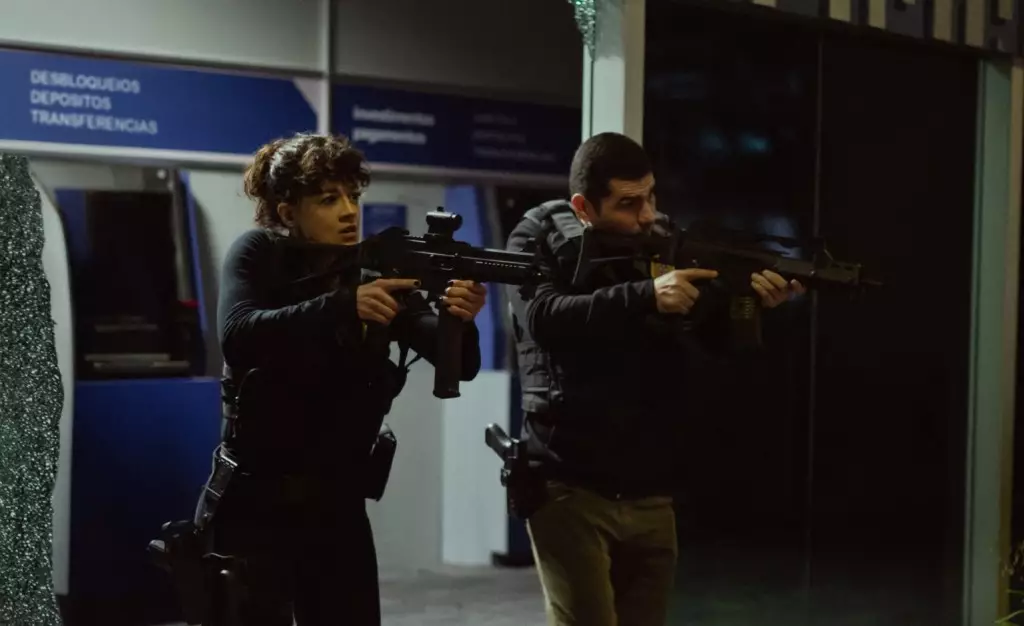Netflix has once again proven its prowess in identifying captivating content by backing the Brazilian original series, Criminal Code. Through its unique narrative and gripping storyline, Criminal Code started as a local production but quickly evolved into a globally acknowledged hit. The show’s recent success serves as a pivotal moment for Brazilian television, hinting at a promising shift where powerful narratives can resonate beyond borders. With the second season on the horizon, the world is eager to see if the series can maintain its momentum and continue to captivate an international audience.
Real-Life Inspiration for Compelling Storytelling
What sets Criminal Code apart is its foundation in real-life events, particularly the notorious heist that took place in 2017 around the Triple Frontier—the intersection of Brazil, Argentina, and Paraguay. This geographical setting not only gives rise to a unique cultural backdrop but also merges various aspects of crime and law enforcement that define this tri-border area. Director Heitor Dhalia emphasizes that the authenticity in storytelling has been a cornerstone of the show’s credibility. The utilization of crime consultants, including former criminals and law enforcement, provides a deep-seated realism that connects viewers to the narrative more profoundly. This authenticity does more than just deliver a story; it provokes thought and ignites conversation about the nature of crime in this volatile region.
Expanded Horizons in Season Two
As Season Two approaches, the stakes are raised significantly. While Season One laid a strong foundation, Dhalia insists that the filmmaking team is committed to amplifying the series’ essence by taking daring narrative leaps. Weaving in complex story arcs surrounding the Phantom Gang—an enigmatic group engaging in audacious heists—creates an elevated sense of urgency throughout the series. The prison break subplot has been particularly intriguing, hinting at an escalation not only in criminal exploits but also in the tangible emotions and ethical dilemmas faced by the characters.
In a landscape where crime dramas are both abundant and varied, Criminal Code distinguishes itself through multifaceted character development and intricate plot details. The narrative is further enriched by a diverse array of perspectives, highlighting the moral complexities nested within crime and justice. The director’s awareness of these human aspects can transform a typical heist narrative into a profound commentary on societal issues.
The Power of Diverse Perspectives
Dhalia’s commitment to varied viewpoints enhances the audience’s engagement by allowing them to navigate through diverse moral landscapes. With many of the actors, inclusive of those who have lived through the weight of the criminal justice system, the series achieves a raw, authentic flavor that seems to resonate deeply with viewers. By juxtaposing various viewpoints—including those of law enforcement, criminals, and victims—the series prompts a multifaceted understanding of crime. This innovative approach emphasizes that thrilling action is complemented beautifully by strong storytelling grounded in real emotions.
Charting New Territory for Brazilian Cinema
Brazil has long been recognized for its rich cinematic history, yet it has faced challenges in exporting its unique storytelling style to wider audiences. Dhalia’s work with Criminal Code and his upcoming project, Os Donos do Jogo, represents a significant turning point, showcasing Brazilian narratives that encapsulate vibrancy and authenticity. The genre’s potential to transcend traditional boundaries, particularly through gripping action and deep emotional engagement, marks a transformative period for Brazilian television on the global stage.
In a fractured world where storytelling has the power to engage, challenge, and evoke empathy, Criminal Code serves as a robust model of what can be achieved when creators dare to tread into uncharted territories. Brazilian productions are poised to shine; with shows like Criminal Code taking bold steps into new storytelling realms, there’s an encouraging sense that global audiences may soon find themselves enamored with the authenticity and drama that defines Brazilian television.

Leave a Reply